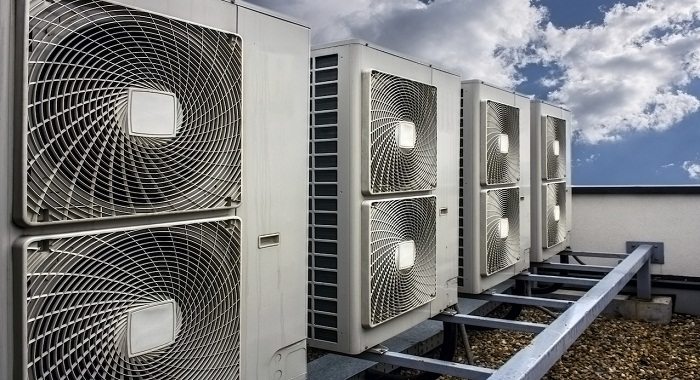How To Create A Successful HVAC Business Plan?

A detailed and well-crafted business plan is essential for any business, and the HVAC industry is no different. When you’re putting together your HVAC business plan, there are key elements that must be included in order to give your company the best chance at success. Keep reading to learn what those key components are and how to create a successful HVAC business plan.
1. Company History Your HVAC business plan should include a brief history of your company. How did it come to be? What are its core values and mission? This section should be short and to the point – you don’t need to go into great detail here, but simply give the reader a snapshot of your business.
2. Company Structure In this section of your HVAC business plan, you’ll need to outline the ownership structure of your company. Are you a sole proprietor? Do you have partners? Are you a corporation? This information is important for potential investors to know.
3. Market Analysis You can’t develop a successful business plan without first doing your research. In the market analysis section, you need to provide an overview of the HVAC industry as a whole and your specific niche within that industry. What trends are happening in the HVAC industry? Who are your target customers? What are your competitors doing? This information will be critical in helping you develop strategies for marketing and selling your products or services.
4. Sales and Marketing Plan Once you’ve done your market research, you can start developing your sales and marketing plan. How will you reach your target market? What marketing channels will you use? What kind of messaging will you use to appeal to your target customers? Your answers to these questions will help you craft a detailed and effective sales and marketing plan.
5. Financial Projections All business plans should include financial projections for the next three to five years. This information will be critical for potential investors, so be sure to include detailed information about your expected revenue, expenses, and profitability. If you include these key components in your HVAC business plan, you’ll be well on your way to developing a successful and sustainable business.
How to create a successful HVAC business plan
If you’re thinking about starting an HVAC business, a important first step is creating a detailed business plan. This document will serve as your road map for success, laying out your plans, strategies, and goals. Here are some tips to help you create a successful HVAC business plan:
1. Do your research. Before you start writing your business plan, it’s important to do your homework. Research the HVAC industry, your competition, and your target market. This will give you a better understanding of the opportunities and challenges you’ll face.
2. Keep it simple. Don’t try to cram too much information into your business plan. Keep it concise and focus on the most important aspects of your business.
3. Be realistic. When creating your financial projections, be realistic. There’s no need to inflate your numbers in order to make your business look more viable.
4. Have a clear purpose. Your business plan should have a clear purpose. Whether you’re looking to attract investors or simply want to keep track of your progress, make sure your plan has a specific goal.
5. Get input from others. Before finalizing your business plan, get feedback from others. Ask trusted friends or family members for their input. You can also hire a professional consultant to review your plan. By following these tips, you can create a successful HVAC business plan that will help you achieve your business goals.
Elements of a successful HVAC business plan
As any business owner knows, a successful enterprise requires a solid plan. The same holds true for HVAC businesses. While many factors contribute to the success of an HVAC company, there are certain elements that are essential to any effective business plan.
1. A clear mission statement. A successful HVAC business must have a clear and concise mission statement. This statement should sum up the company’s purpose and goals, and serve as a guide for all decision-making.
2. Defined target markets. Another key element of a successful HVAC business plan is to identify and define the company’s target markets. This process includes understanding the needs and wants of potential customers, as well as the competition.
3. Marketing strategies. Once the target market is defined, it’s time to develop strategies for marketing the company’s products and services. This may include everything from online advertising to direct mail campaigns.
4. Financial forecasting. A final essential element of any good business plan is financial forecasting. This process provides a roadmap for the company’s finances, and helps to identify potential problems and solutions.
What to include in your HVAC business plan
Formulating a business plan for your HVAC business is a process that will take some time, effort, and research. However, it is a critical step in ensuring the success of your business. Here are some key elements to include in your HVAC business plan:
1) Company overview: Give a brief description of your company, including its history, mission statement, and any unique selling points.
2) Industry analysis: Conduct a SWOT (strengths, weaknesses, opportunities, threats) analysis of the HVAC industry. This will help you identify potential areas of growth or decline, as well as potential opportunities or threats.
3) Market analysis: Conduct a thorough analysis of your target market, including demographics, Psychographics, and buying behavior. This information will be critical in developing your marketing strategy.
4) Competitive analysis: Research your competition and develop strategies for differentiating your business.
5) Sales and marketing strategy: Develop a sales and marketing strategy that includes goals, objectives, tactics, and a budget.
6) Operations plan: Outline your plans for designing, manufacturing, and installing HVAC systems.
7) Management and organizational structure: Describe your management team and organizational structure.
8) Financial projections: Create realistic financial projections for your business, including income statements, cash flow statements, and balance sheets. 9) Exit strategy: Develop a plan for exiting
How to make your HVAC business plan stand out
Your HVAC business plan is the key to success for your company. It is essential to set your company apart from the competition. Here are some tips on how to make your HVAC business plan stand out:
1. Keep it Simple Make sure your HVAC business plan is easy to understand and follow. Do not include too much information or make it too complicated. The simpler your plan is, the easier it will be for investors to understand and get behind your company.
2. Include a Market Analysis When writing your HVAC business plan, be sure to include a market analysis. This will show potential investors that you have done your research and that you understand the industry. Include information on the size of the market, growth potential, and your target market.
3. Describe Your Products and Services In your HVAC business plan, be sure to include a description of your products and services. Include information on what makes your products and services unique and how they will benefit your customers.
4. Highlight Your Experience Be sure to highlight your experience in the HVAC industry in your business plan. This will show potential investors that you are knowledgeable and that you have the experience necessary to run a successful business.
5. Include a Sales and Marketing Plan Your HVAC business plan should include a sales and marketing plan. This will show potential investors how you plan on generating revenue and growing your business. Include information on your target market, your sales strategy, and your marketing budget.
6. Outline Your Financial Projections In your HVAC business plan, be sure to include financial projections. This will give potential investors an idea of your company’s financial health and future potential. Include information on your start-up costs, your operating expenses, and your expected revenues.
7. Get Professional Help If you are not sure how to write an effective HVAC business plan, consider hiring a professional consultant. A consultant can help you develop a well-written and comprehensive plan that will set your company apart from the competition.
Why you need a HVAC business plan
As a potential HVAC business owner, you may be wondering if you really need a business plan. The answer is a resounding yes! A well-crafted business plan will provide you with a roadmap for success, help you secure funding, and ensure that your business is able to weather any storms that come its way. There are a number of reasons why you need a business plan for your HVAC business.
First, a business plan will help you articulate your business goals and objectives. This will give you a clear sense of direction and help you measure your progress over time.
Second, a business plan will help you secure the funding you need to get your business off the ground. If you’re looking for investors or lenders, they’re going to want to see a well-thought-out business plan that demonstrates your commitment to your business and its potential for success.
Third, a business plan can help you anticipate and manage any challenges that you may face as your business grows. By thinking ahead and planning for potential difficulties, you’ll be in a much better position to overcome them if they do arise.
Finally, a business plan is simply a good way to organize your thoughts and ideas about your business. Having a well-written business plan will force you to think through every aspect of your business, from your target market to your marketing strategy. This level of planning will pay off in the long run, helping your business to run more smoothly and ensuring that you’re always prepared for whatever comes your way. So, if you’re serious about starting an HVAC business, make sure you take the time to write a robust business plan. It will be one of the best investments you ever make in your business.
How to get started with creating your HVAC business plan
Your HVAC business plan is the foundation of your business. It spells out what you hope to achieve and how you plan on achieving it. Without a sound business plan, your business is likely to flounder. Creating a business plan can be a daunting task, but it doesn’t have to be. Here are a few tips to get you started: 1. Define your business. What exactly will your HVAC business do? What services will you offer? What products will you sell? Be as specific as possible.
2. Research your industry. What is the HVAC industry like? Who are your customers? What do they want and need? How can you best meet their needs?
3. Know your competition. Who else is in the HVAC industry? What do they offer that you don’t? How can you differentiate your business?
4. Create financial projections. What will your revenue and expenses be for the next year, two years, five years? How much do you need to start your business? How will you fund your growth?
5. Write your business plan. Once you have all the above information, you’re ready to start writing your business plan. Be sure to include an executive summary, company description, market analysis, financial projections, and management team overview.
6. Get feedback. Ask others for their input on your business plan. Are there any holes? Any areas that need more explanation? Use this feedback to improve your plan.
7. Implement your plan. Once your plan is complete, it’s time to start putting it into action. Set up your business, track your progress, and make changes as needed. Creating a business plan may seem like a lot of work, but it’s essential for starting your HVAC business off on the right foot. Follow these tips and you’ll be well on your way to success.



